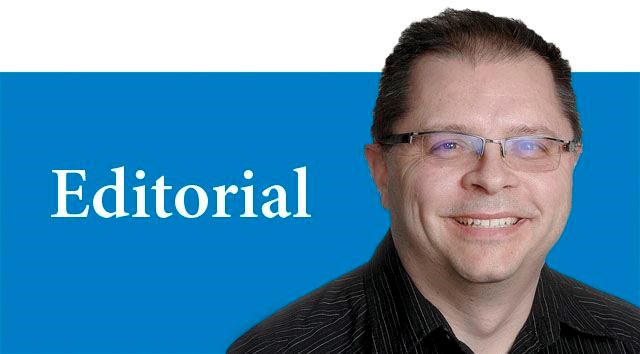Tragically, a 47-year-old cyclist died Monday afternoon at the corner of Queensway and First Avenue.
As soon as the incident was reported, however, there seemed to be only one question: whose fault was it?
An RCMP investigation found the woman, riding her bicycle on the sidewalk and on the wrong side of the road, crashed into the semi truck and trailer as it turned from First Avenue onto Queenway.
No one likes to blame the victim, particularly when that person loses their life as the result of a bad choice, but it's important to recognize when the driver in such a crash is not to blame.
The same thing happened on a much more horrific scale earlier this year. Everyone wanted to know which driver was at fault in the Humboldt Broncos bush crash. After a lengthy investigation, the RCMP did charge the driver of the semi truck and trailer that hit the Broncos bus and the case is before the courts.
Even in what appear to be easy situations, however, blaming solely one act or one individual for a tragedy is often a mistake. Most people know that basic truth yet still look for an easy explanation - whose fault was it? - to help them understand the situation.
Unfortunately, taking such a simple approach often does not bring understanding at all. Usually, it's downright wrong.
Our prehistorically shaped brains evolved to be great at making these snap either/or decisions and it served our ancestors well at deciding whether the approaching person was a friend or foe and whether the rustling bushes was either the wind or the beast about to eat us for lunch.
Sadly, the same brains don't work so well in the complex, modern world.
Osama bin Laden and his gang of thugs were to blame for 9/11, as the world marked that sad anniversary this week, but stopping there ignores so many other contributing factors to the terrorist attack, from the failure of U.S. intelligence agencies and airline security protocols to increased radicalism and anti-American sentiment throughout the Muslim world.
It's easy to manipulate anyone who sees the world through a black and white lens, whether it's to convince them to hijack a plane and fly it into a building, vote for Donald Trump or Justin Trudeau, reject climate change as legitimate science, reject vaccinations as legitimate preventative medicine or pick Pepsi over Coke, the NFL over the CFL, Ford over GM.
Reducing the world to good/bad literally reduces people's worlds, compressing them into a radicalism where only they and people like them are good and the rest are bad.
In his book How The Right Lost Its Mind, Charlie Sykes writes about how this kind of binary thinking led American conservatives and evangelical Christians to abandon longheld political and moral traditions to support Trump's candidacy and now presidency.
Trump's views on abortion are fuzzy but Hillary Clinton believes in killing babies.
Trump doesn't act very Christian but Hillary Clinton hates Christmas and practices witchcraft.
Trump doesn't seem to care much about guns or same-sex marriage or climate change or immigration or health care reform but Hillary Clinton does. She'll take away your guns, force pastors to marry gay couples, order industries to pay fossil fuel taxes, open the borders to anyone and offer health insurance to everyone!
With such a terrified worldview, truth doesn't have to be true, it just has to be believable and anything about bad people or those who disagree is believable, no matter how ridiculous and blatantly wrong.
From there, conspiracy theories and apocalyptic visions take flight, unburdened by truth or decency or fairness or any consideration of a person or a topic beyond best or worst, hero or heretic, saviour or destroyer.
Canadians are no better than Americans at this, particularly in politics. Stephen Harper and the Conservatives spent years demonizing the federal Liberals in general and Trudeau in particular as gun-hating potheads too soft and stupid to govern.
Trudeau turned the tables, however, by demonizing the Harper Conservatives as cruel, heartless money managers who didn't care about people.
Neither is true but the either/or framing of the politicians and their politics made choosing simple and avoided the hard work of looking at platforms and promises for many voters.
When we take the time to try to understand people and perspectives we don't agree with, our world expands and our understanding broadens.
We see opposing individuals and views as opportunities for discussion, not as mortal threats to our way of life.
When we see beyond black and white, we see colours. When we gaze further than good or bad, we're far more likely to see the similarities with our neighbours, rather than just the differences. When we look through either/or, we are faced with a complex reality where lies and blame are easier to find than facts and truth.
When we at least make the effort, we have a much better chance of seeing the world as it is, rather than the easy to understand way we wish it was.
-- Editor-in-chief Neil Godbout



